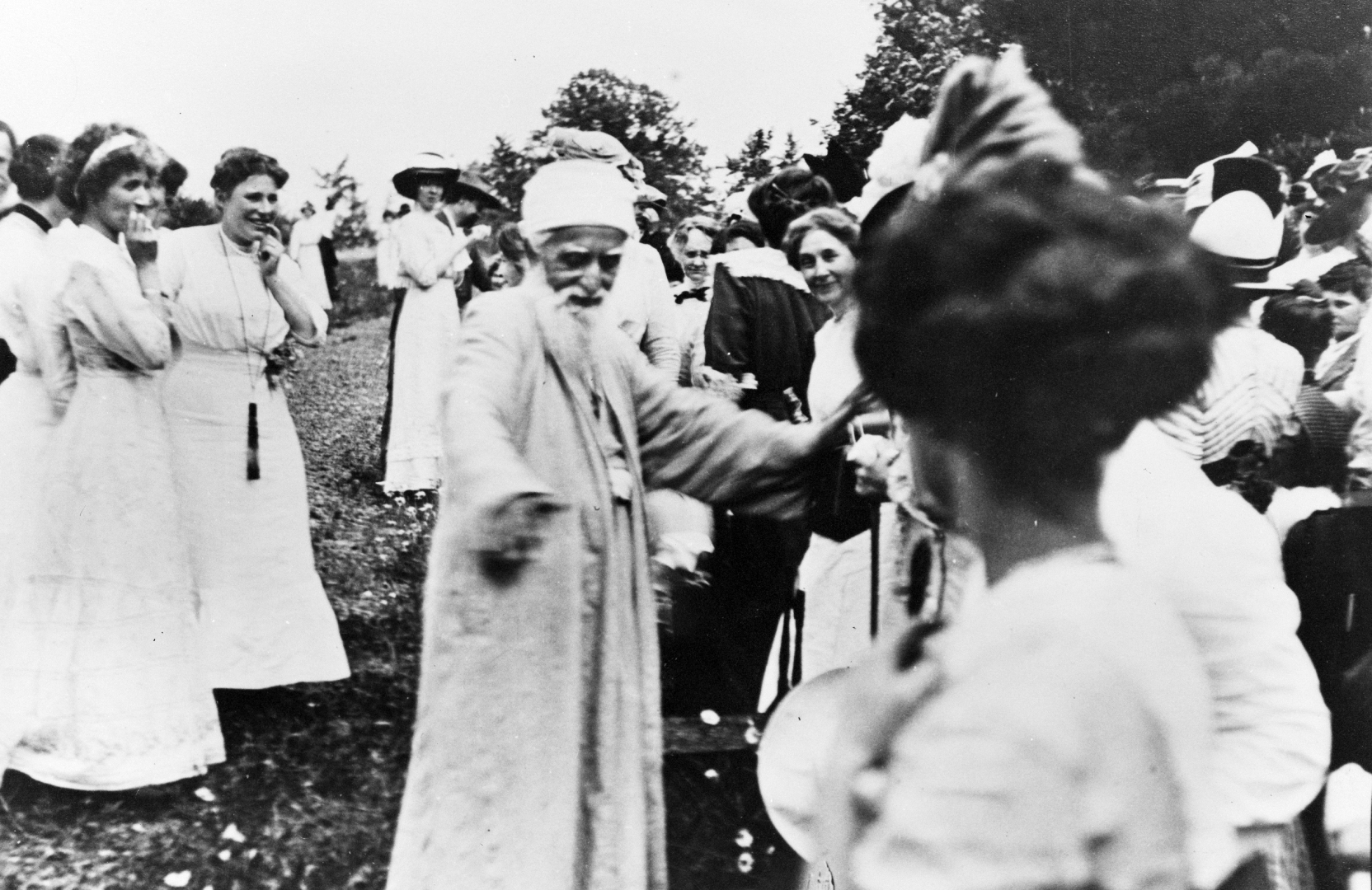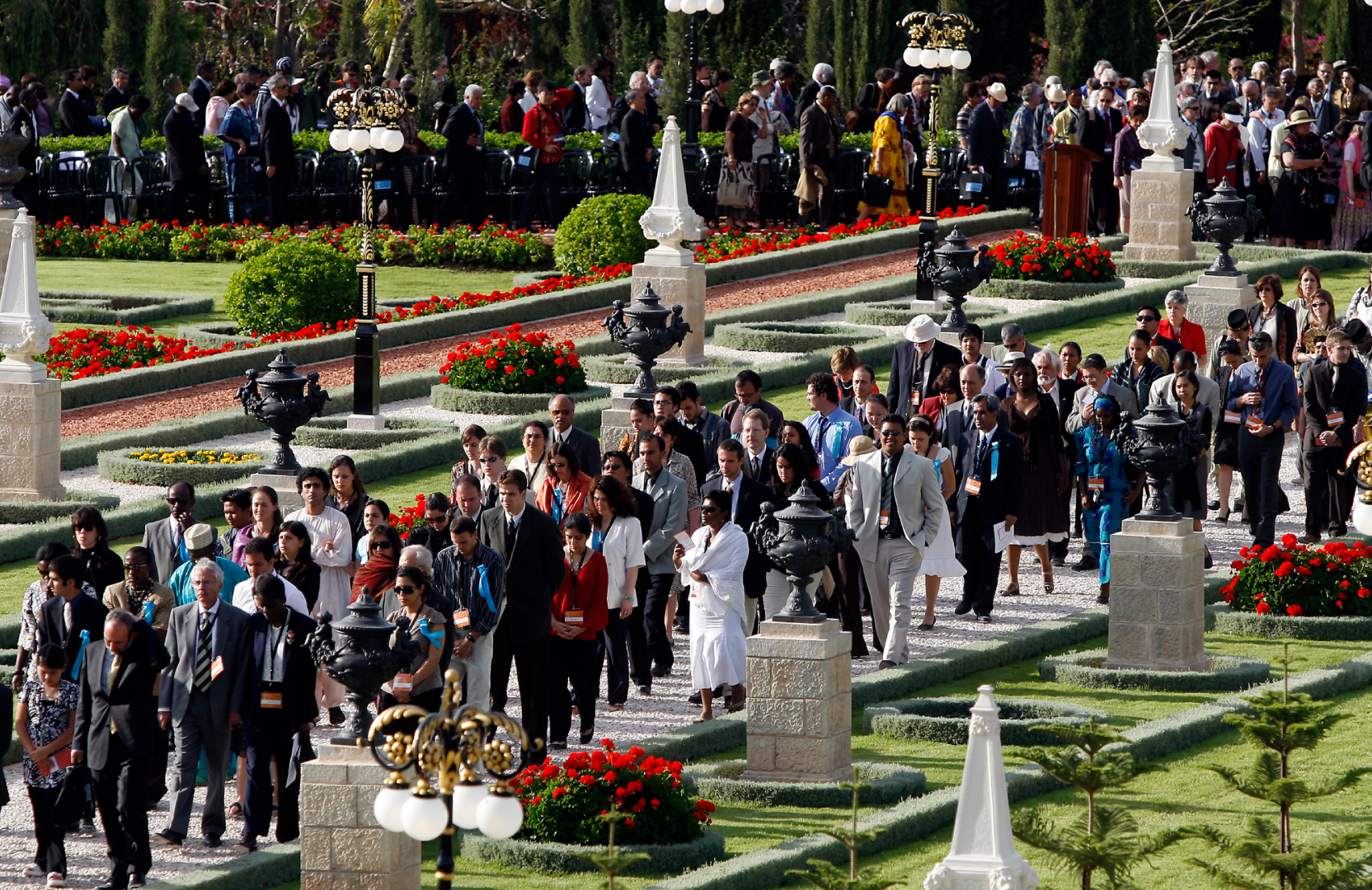To Bahá’ís Abbas Effendi is the perfect Exemplar of Bahá’u’lláh’s teachings in action, and an enduring model that every Bahá’í strives to follow.
Abbas Effendi, also known as ‘Abdu’l-Bahá, was born in 1844 in Persia. He enjoyed a privileged childhood until His Father, Bahá’u’lláh, the Prophet – Founder of the Bahá’í Faith, was banished for His religious beliefs from Persia to Baghdad and finally to the harshest prison colony in the Ottoman Empire –Akko.
Abbas Effendi accompanied His Father throughout their exiles, took care of His followers and upheld the principles of justice with civil authorities. In time Abbas Effendi’s generosity of spirit, selfless service and adherence to His principles endeared Him to those who came to know Him and won over even the most cold – hearted of enemies.
Abbas Effendi was sent as a prisoner toAkko, but for more than 40 years, He dedicated Himself to serving the people of the city, especially the poor. He established good relations between the Bahá’ís and the diverse peoples, communities and official institutions throughout the region.
Abbas Effendi said, “do not be content with showing friendship in words alone, let your heart burn with loving kindness for all who may cross your path,” and “love ye all religions and all races with a love that is true and sincere and show that love through deeds…”.
Abbas Effendi was Bahá’u’lláh’s eldest son, and when Bahá’u’lláh passed away in 1892, He appointed Abbas Effendi as His successor. As the Head of the worldwide Bahá’í community for 29 years, Abbas Effendi interpreted the teachings of His Father’s Faith, amplified its doctrines, and outlined the central features of its administrative institutions.
Abbas Effendi travelled extensively in the West. He tirelessly proclaimed the oneness of humankind in synagogues, churches, temples, on university campuses—everywhere He spoke. He condemned all forms of prejudice—religious, racial, class, national—and promoted the equality of woman and man.
To Bahá’ís Abbas Effendi is the perfect Exemplar of Bahá’u’lláh’s teachings in action, and an enduring model that every Bahá’í strives to follow.
Abbas Effendi (‘Abdu’l-Bahá) lived a long life of selfless service and spent the last years of His life in Haifa. He passed away in 1921.
Ten thousand mourners – more than a quarter of the city’s population – attended Abbas Effendi’s funeral in Haifa and escorted His coffin up Mount Carmel from His home on Haparsim Street to the Shrine of the Báb (Prophet – Herald of the Bahá’í Faith).
The hundred or so Bahá’ís were joined by women and men from every religion, class and race, to pay homage and lay Abbas Effendi to rest. This gathering was historic – unprecedented in the region for the number and diversity of those who participated.
So united were the diverse people in their acclamation of Abbas Effendi, ‘The Shelter for All Mankind’ that there seemed to be nothing left for the Bahá’ís to say.
“He hath left in every heart the most profound impression, on every tongue most wondrous praise. And He that leaveth a memory so lovely, so imperishable, He, indeed, is not dead.”
“He who has written such beautiful principles has increased His family among all His readers and has passed to posterity, crowned with immortality”.”
“Know of a certainty that your ‘Abbás will live forever in spirit amongst you, through His deeds, His words, His virtues, and all the essence of His life. We say farewell to the material body of our ‘Abbás and His material body vanisheth from our gaze, but His reality, our spiritual ‘Abbás, will never leave our minds, our thoughts, our hearts, our tongues.”
The remains of Abbas Effendi were placed within the Shrine of the Báb on Mount Carmel as a temporary arrangement.
In April 2019, the international governing council of the Bahá’í community – the Universal House of Justice – announced that the time had come to build a permanent resting place for Abbas Effendi, (‘Abdu’l-Bahá) in SouthAkko.
This spot was chosen to reflect Abbas Effendi’s desire to be buried under the sands between Haifa andAkko.
Abbas Effendi described the area between Haifa andAkko as the pathway taken by the loved ones of God and Bahá’í pilgrims.
This Shrine will be located about 2 km outside the old city ofAkko.
A well-known prayer by Abbas Effendi (‘Abdu’l-Bahá) includes this supplication to God, “Make me as dust in the pathway of Thy loved ones….”
This idea in the prayer is the main inspiration for the design.
The design represents Abbas effendi’s selflessness, wisdom, openness, acceptance, and kindness towards all people, embodies His love for Gardens and nature, and reflects His progressive and forward-looking approach.
“The interior of the Shrine is envisioned to be a place of diffused light and quiet contemplation. Abbas Effendi’s resting spot is placed at the center of this serene space, and a sunburst pattern emanating from His resting place will embrace the whole garden, symbolizing the radiance that Abbas Effendi brought to the people of the world.”
Architect Hossein Amanat



The Shrine of Abbas Effendi (‘Abdu’l Bahá) will be a place of pilgrimage for the worldwide Bahá’í community; and a place of tranquility, beauty and spirituality – as are all of the Bahá’í Holy Places and Gardens in Haifa andAkko.
Just like Abbas Effendi, His Shrine will welcome every single member of the human race.